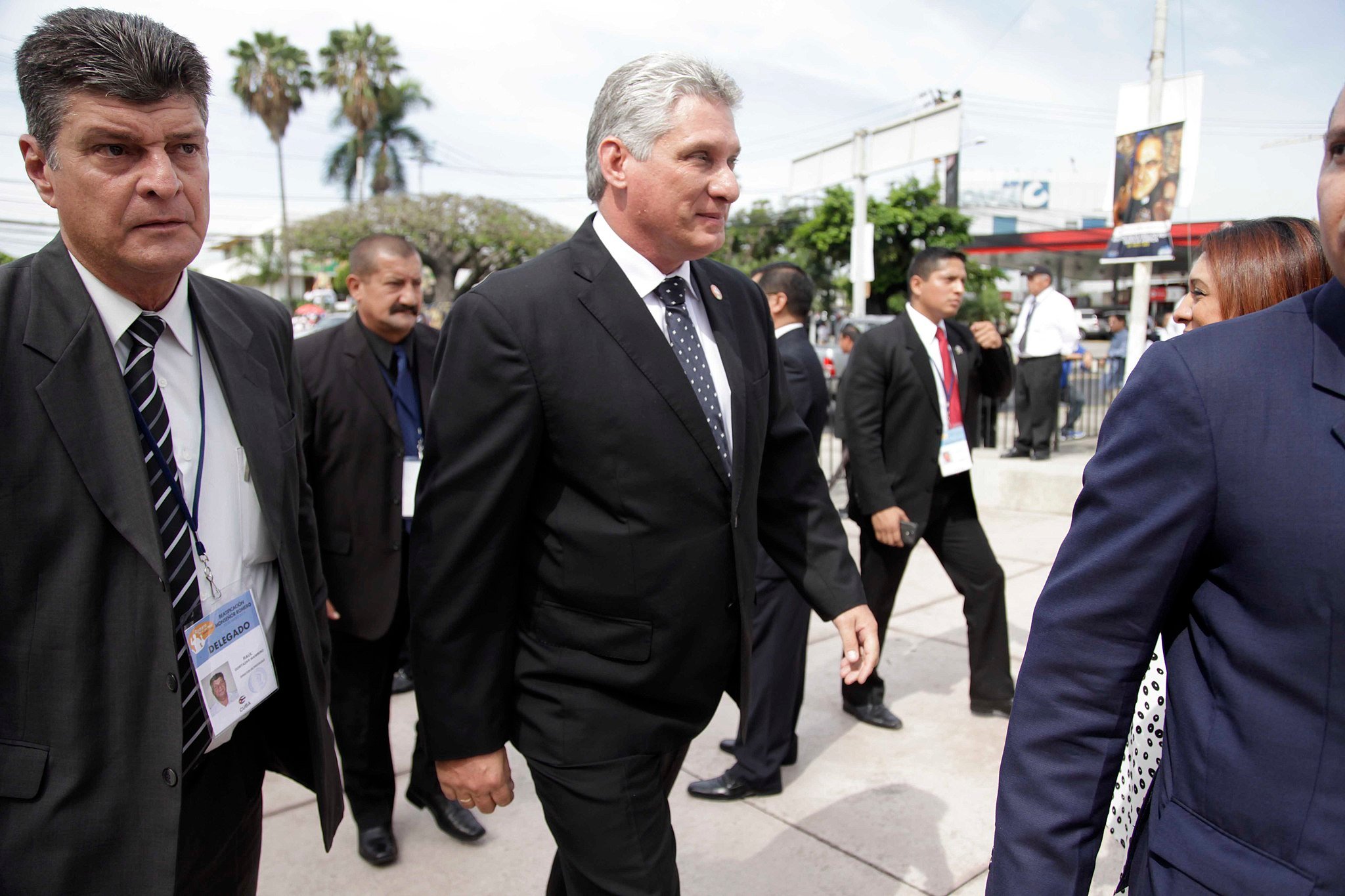Reportage
Who is Díaz-Canel, the next president of Cuba?
More Cubans are speaking their minds and frustrated with the status quo. Miguel Díaz-Canel’s job will be to further the continuity of the Revolution while shepherding the reforms approved seven years ago.

Cuba has a new president who, for the first time in decades, is not named Castro. Though announced and long anticipated, the official candidacy of Miguel Díaz-Canel made live on television sent a tangible thrill through the National Assembly of the Poder Popular gathered Wednesday in the Palazzo delle Convenzioni. This is a historic event, made possible by Raúl Castro’s decision to respect the term limits and give way not to a generational shift.
Castro, in a blue suit facing his successor, seemed radiant while applauding the younger Díaz-Canel, excited and a little stiff accepting his task. Indeed, it was Raúl Castro who anointed him and elevated him in 2012 to the vice presidency. And it will be Castro — still leading the Communist Party of Cuba and the armed forces until 2021 — who will provide the protective umbrella for the new president during the first few years of his mandate.
“The new president will have to create a new political consensus. He will not inherit one,” says Rafael Hernández, editor of the Temas magazine, referring to the fact that, although he has been appearing on television for years, the new head of state has always derived his legitimacy from the Castros. What he gains from being “young,” growing up in the framework of the Revolution but without the cult of personality, he pays for in lacking the charisma of those who actually created the Revolution. For this he will need the support of the old guard.
Not only that, Díaz-Canel will have to start working as a team with other emerging characters of his generation, such as the vice president of the Cuban State Council, Mercedes López Acea, and Foreign Minister Bruno Rodriguez, who will have the task of addressing the increasingly aggressive politics of the president US Donald Trump. The “tsar” of the Murillo economy will have to deal with the issues most pressing for the population: economic growth that raises wages, the elimination of the dual currency, the problem of housing, the confirmation of the strategic role of small businesses and private investments.
“The generational renewal of the ruling class is one of the objectives that Raúl Castro has proposed,” says historian and essayist Rafael Rojas. Only in this way can the new president overcome the weakness that comes from not having, besides institutional power, the secretariat of the PC. The political system built by the two Castro brothers in fact provides that the highest authority has all the reins of the country firmly in his hands.
Moreover, compared to Fidel, Raúl had—and will continue to have—the leadership of the Revolutionary Armed Forces which control almost 70 percent of the island’s economy. “While Raúl remains alive, the loyalty of the army and the party will not be lacking,” says Rojas.
Pedro Campos, ex-diplomat and analyst, believes there may be problems with the party-state bureaucracy if he wants to speed up the economic-social reforms envisaged by the reforms approved seven years ago that are still largely unfinished.
Although we often see it, we do not actually know it. We do not know whether it is able or not to replace the old guard, who won the Revolution and who assured the sovereignty and independence of the island. Furthermore, the economy is not good. “Those like me have more and more trouble getting to the end of the month. More than words, however, we ask the new president for facts,” says Yudaisi, a high school teacher.
Harold Cárdenas, former professor of Marxism at the University of Matanzas, is the creator of the blog La Joven Cuba, which has been critical of some choices of the government. They were accused of leftism and under threat of closure. It was Díaz-Canel who met with the bloggers to listen to their reasons and to support them, convinced that the new generation, those born after the Revolution, although critical, “will give continuity to the Cuban revolutionary process.”
“Díaz-Canel has occupied an uncomfortable position for years,” Cárdenas tells us. “None of our generation has managed to reach his level. But he is much more communicative of the official image. And more open.”
Originally published at https://ilmanifesto.it/e-ufficiale-diaz-canel-eletto-oggi-nuovo-presidente/ on 2018-04-19
